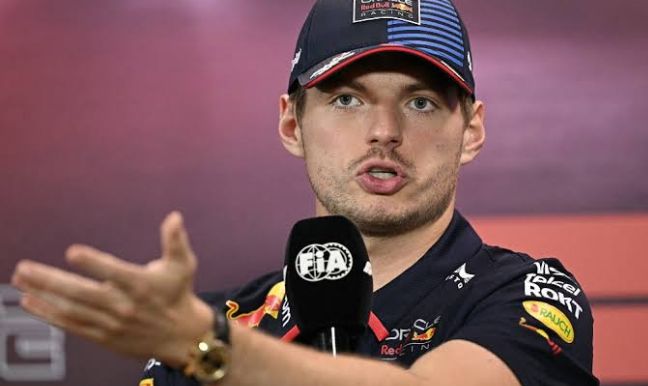Former F1 champion says goodbye to British media position amidst Max.

The Formula 1 community has been shaken by major news: a former F1 World Champion revealed they are stepping down from an esteemed position in the British media. This decision follows growing allegations of bias regarding Max Verstappen, the reigning F1 World Champion, igniting substantial discussions about neutrality in sports journalism.
Despite being a respected figure in the motorsport community, the pundit’s recent bias toward Verstappen has surprised fans and colleagues alike. Verstappen’s dominance in recent seasons, along with his aggressive driving style and strong personality, has led to polarized opinions about him. For months now, there have been claims of media bias swirling around this situation.
Max Verstappen has undoubtedly been at the center of Formula 1 discussions in recent years, especially following his commanding performances during the 2021 and 2022 seasons that led to consecutive World Championship victories. However, alongside his ascent to fame, there has also been growing criticism, particularly from supporters of other drivers. Many contend that Verstappen’s success tends to eclipse the accomplishments of other skilled competitors and argue that media attention is disproportionately geared towards promoting him as the sport’s leading figure.
The exit of the former champion follows a series of well-publicized incidents where Verstappen’s approach to dealing with on-track controversies was frequently defended, sometimes overshadowing other drivers. Critics have argued that Verstappen’s successes are exaggerated, with media outlets focusing more heavily on his wins and diminishing the accomplishments of others—especially Lewis Hamilton, Charles Leclerc, and George Russell—who often receive less prominent coverage.
In an official statement, the former champion detailed their decision, pointing to a desire to escape the growing toxicity in how Verstappen is portrayed by the media. They voiced worries about the imbalance in coverage and emphasized that as a former racer, they felt ethically obliged to offer fair and objective insights—something they believed was being compromised. The pundit also recognized the pressure on journalists to appeal to Verstappen’s extensive global fanbase, which consequently affected many media narratives’ tone.
The allegations of bias and the pundit’s ensuing resignation have underscored a broader problem in sports journalism: balancing objectivity with navigating intense fan loyalty and the commercial interests associated with star athletes. With Verstappen’s increasing global popularity, he has clearly become one of F1’s most marketable personalities, resulting in heightened media attention—both positive and negative—as his career progresses.
Following the recent departure, both F1 enthusiasts and industry experts are considering whether the sport’s media environment is becoming excessively polarized. The pundit’s exit highlights the fragile balance between factual reporting, providing insightful analysis, and managing star power influence in professional sports coverage. It remains uncertain if this resignation will trigger a broader reconsideration of media practices within F1; however, Verstappen’s impact—both on-track and off—has undeniably transformed Formula 1 journalism forever.
